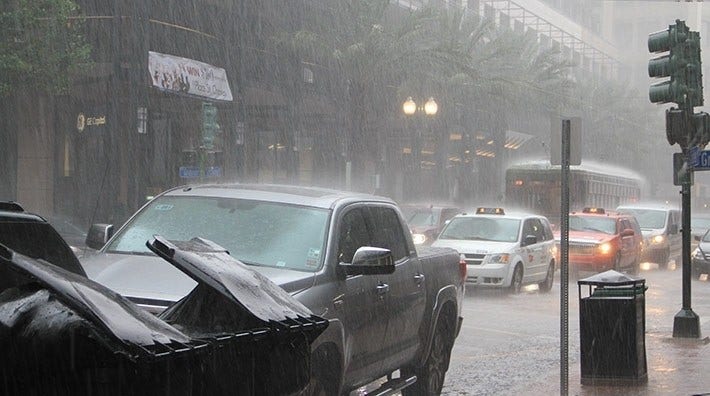How to Get Ready for a Natural Disaster When You Have Cancer

If you are a cancer patient or caregiver and you learn a hurricane, wildfire, or other natural disaster is coming your way, take steps to prepare in advance. Planning and preparing are necessary, but can be very stressful, especially during the COVID-19 pandemic. The usual evacuation procedures and shelter locations and availability in your community, county, or state, will likely be different this year than in previous years.
The Centers for Disease Control and Prevention (CDC) has resources about how COVID-19 is affecting disaster preparedness and what you can do to be as safe as possible, including:
- Helpful hints to plan and prepare for hurricane season
- Safety tips for going to a public disaster shelter during the pandemic
- Information about how wildfire smoke might affect people during the pandemic
Overall, there are some general steps to take when planning for a natural disaster and tips to remember about how the coronavirus pandemic may impact your plans.
- Give yourself more time than usual to prepare, if possible.
- Know your state and local mandates, rules, and guidance about the use of face coverings and social distancing. Keep in mind there may be limited space in community centers, shelters, and other public facilities normally used during natural disasters.
- Make a list of medicines and treatment schedules and store it in a handy place.
- Discuss with your health care team the possibility of getting an extra supply of medicines, or if you should consider having any special equipment on hand.
- Write down important phone numbers, such as for your doctors, clinic, and pharmacy.
- Check with your health care team to find out who to call if you can’t get through to them using your regular methods.
- If you are due for a treatment during the emergency, call your health care team to talk about options for getting to treatment or rescheduling.
- Ask your health care team if you should get vaccinations for hepatitis A, hepatitis B, the flu, pneumococcus, tetanus, or other diseases that can sometimes come from unsafe conditions due to natural disasters.
If you’ve had to evacuate your home or treatment center, or if a storm or natural disaster has changed your treatment plan, you'll need to know state, county, and local rules related to COVID-19.
In general, it can help to follow these tips:
If you need help from the American Cancer Society, call us at 1-800-227-2345
- If you’re in a temporary shelter, remember rules about social distancing and face coverings might be different than you're used to at home. Call shelters ahead of time to know what rules are in place. It's a good idea to find out if health care professionals are on site so you can let them know if you have been getting cancer treatment.
- If you are sick and think you need to be seen by a doctor right away, you might need to call ahead before going to the nearest urgent care center or emergency room.
- Try to keep taking your medicines on schedule. If you don’t have your medicines or don’t know where they are, try to get in touch with your pharmacy, doctor, clinic, or your health insurance company.
- If you can’t get your medical records, write down everything you can remember about your treatment.
- Protect yourself from germs by wearing a mask or face covering when recommended or mandated, washing your hands as often as possible, and drinking bottled water, or water that has been boiled for a full minute and then cooled.
- Make sure meats are cooked thoroughly and fruits and vegetables are washed in clean water. Don’t eat cooked foods that have been left out at room temperature for more than 2 hours.
- Keep any cuts or wounds covered with bandages unless your doctor has told you otherwise.
- Don’t share toothbrushes or eating utensils or cups with anyone else.
- Reviewed by
- Helpful resources

The American Cancer Society medical and editorial content team
Our team is made up of doctors and oncology certified nurses with deep knowledge of cancer care as well as journalists, editors, and translators with extensive experience in medical writing.
From the Centers for Disease Control and Prevention: From the American Cancer Society:
American Cancer Society news stories are copyrighted material and are not intended to be used as press releases. For reprint requests, please see our Content Usage Policy.


